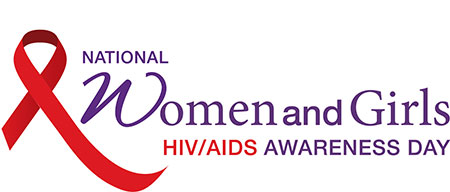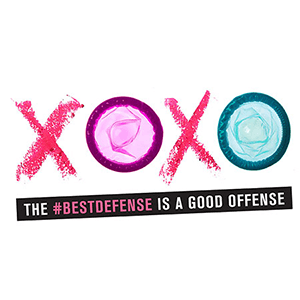XOXO: Put Your #BestDefense Into Play
Editor's Note: As we lead up to this week's observance of National Women and Girls HIV/AIDS Awareness Day, here are HIV prevention tips and resources from the Office on Women's Health.

Ever heard the phrase “The Best Defense Is a Good Offense”? Sure, it’s generally a sports phrase, but why can’t it apply to sex, too? If you play or ever played sports, you wouldn’t dream of getting in the game without the right equipment — cleats, running shoes, helmets, and pads are all essential to staying safe on the field, court, or track. Well, you need “safety gear” for sex, too!
This National Women and Girls HIV/AIDS Awareness Day (NWGHAAD) — celebrated March 10 — is all about prevention. When it comes to sex, we want all women and girls to "gear up."Here's a short checklist with ways you can defend yourself against HIV and other sexually transmitted diseases:
- Use a condom every time you have vaginal, oral, or anal sex. It can be easy to get caught up in the heat of the moment, so be prepared. Keep one in your purse or your nightstand. Besides abstinence, male and female condoms are the only method of protection against sexually transmitted infections and pregnancy. But you should take it one step further and use dual protection, which means using a condom and a hormonal form of birth control for maximum protection. Condoms may not be enough to prevent you from getting pregnant. Visit your local clinic and see if you can pick up some condoms for free and talk to a health care provider about your hormonal birth control options.
- Get tested for HIV. It's the only way to know your status. Ask your partner to get tested, too. And know their status before engaging in sexual activity. If you feel embarrassed about asking them to get tested, think of it this way: Not knowing their status puts you at risk. So set a date and get tested together.
- Be monogamous. Being in a sexual relationship with only one partner who is also faithful to you can help protect you.
- Don't abuse drugs or alcohol. Using drugs or drinking too much may lead to risky sex, such as unprotected sex or sex with a partner whose status you don't know. It can also put you as risk for sexual assault.
- Talk to your doctor about PrEP or PEP. If you think you've been exposed to HIV or you're in a sexual relationship with a person living with HIV, your doctor can prescribe post-exposure prophylaxis (PEP) or pre-exposure prophylaxis (PrEP) to protect you from getting the virus.

Join us on March 10 as we encourage women and girls across the country to put their best defense into play. Here's how you can get involved:
- Help reduce the stigma. Send a tweet or share a Facebook or Tumblr post for the NWGHAAD ThunderclapExit Disclaimer Sign up before 12 p.m. ET on Thursday, March 10.
- Spread the word through social media. To make it easy for you, we've written messages for you. Don't forget to use our hashtags: #NWGHAADExit Disclaimer and #BestDefenseExit Disclaimer.
- Walk with us. Do you live near Washington, DC? You're invited to The Best Defense Is a Good Offense: A Walk for HIV PreventionExit Disclaimer Grab your friends, sisters, and colleagues and walk with us on March 10.
This NWGHAAD, love yourself, be informed, and stay safe. Are you in? Get information on NWGHAAD and what every woman needs to know about HIV and AIDS.